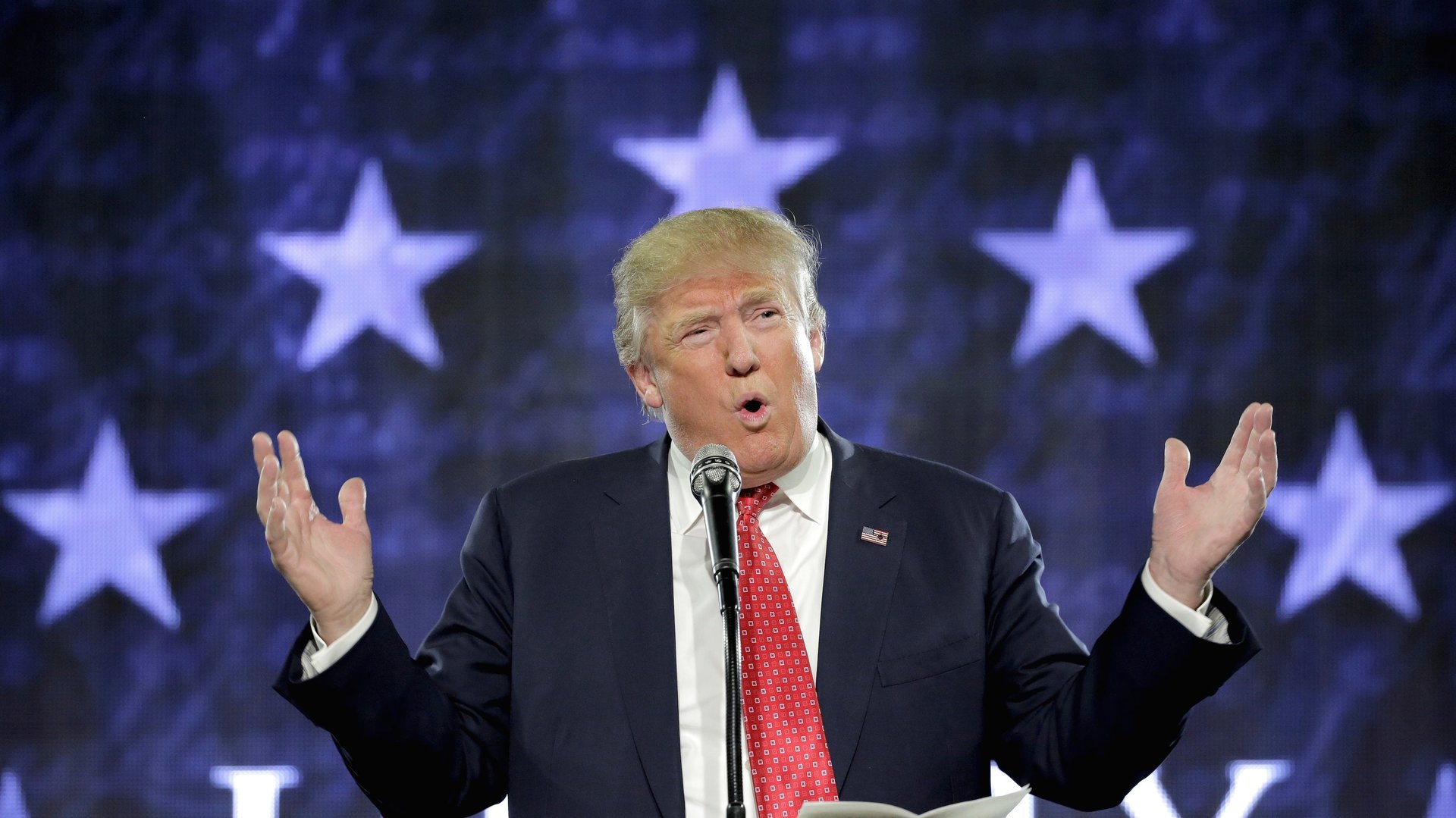Is the Republican establishment finally warming to Trump?
Despite—or because of—his rejection of the Republican establishment, Donald Trump remains the frontrunner for the party’s presidential nomination. Eleven days before the Iowa caucus, however, the outsider candidate is gaining traction with the powers-that-be, including big-money donors.


Despite—or because of—his rejection of the Republican establishment, Donald Trump remains the frontrunner for the party’s presidential nomination. Eleven days before the Iowa caucus, however, the outsider candidate is gaining traction with the powers-that-be, including big-money donors.
Spencer Zwick, the top fundraiser for Mitt Romney’s 2012 campaign, told The Washington Post that a number of “power brokers and financiers” are attempting to build relationships with Trump, many reaching out through Wall Street connections.
“A lot of donors are trying to figure their way into Trump’s orbit,” he said. “There is a growing feeling among many that he may be the guy, so people are certainly seeing if they can find a home over there.”
That’s far from what many pundits expected, which was a Republican establishment uniting to defeat Trump. Instead, it appears they see his main rival in Iowa, Ted Cruz, as the more dangerous threat to their party’s future. GOP luminaries including Senate majority leader Mitch McConnell and former Republican presidential nominee Bob Dole have focused their criticism on Cruz. Even the Republican governor of Iowa, Terry Branstad, has come out against his nomination.
Still, Candice Nelson, a political science professor at American University whose research focuses on campaign finance and voter behavior, isn’t ready to declare Trump the establishment favorite just yet.
“I think it’s more the media looking for a story, at this point,” she tells Quartz. “Then again, everything that’s going on with Trump is something we haven’t really seen before.”
But Nelson acknowledges that the beginnings of a major shift may very well be under way.
“Donors are trying to hedge their bets,” she says. “Whoever the nominee is, they want the opportunity to have a conversation with that person. What’s interesting about Trump and business leaders is that one would expect he would already have relationships with these people prior to running for president.”
Trump has, of course, radically outperformed expectations while eschewing big-donor support, which raises questions about whether large-scale campaign financing really matters for Republicans in 2016. Florida governor Jeb Bush has garnered wide support from donors—including raising more than $100 million for his allied Super PAC, Right to Rise—to little avail.
For Nelson, big donors still have a role to play for Republicans in 2016.
“Even if money doesn’t matter, the fact that people are willing to contribute money suggests support, or at least a willingness to accept whoever the nominee is,” she says. “In Trump’s case, it’s less about money—it gives him an opportunity to say ‘I have broad support from all these important people,’ though.”
Beyond the business set, support for Trump’s candidacy among Republicans appears to be broadening. Back in March 2015, only 23% of Republican voters said they would support Trump in a general election. According to the latest NBC/Wall Street Journal poll, that number is now 65%.
A Jan. 20 story in The Hill profiled several Republicans who have thrown their weight behind Trump, including Richard Edwards, the president an electrical contracting firm in Pennsylvania who, until now, has considered himself a “lifelong establishment Republican.”
“My friends are now seeing something in him,” Edwards told The Hill. “He just understands business, and he’s right in saying that America is a business. It’s a multi-billion-dollar business.”